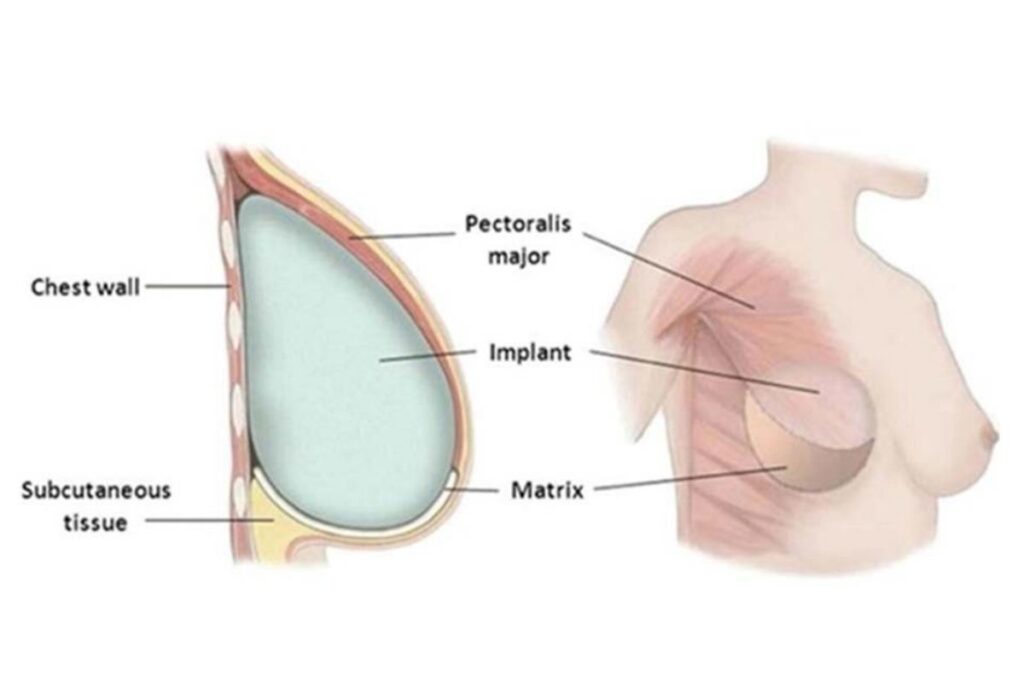Breast Reduction & Breast Implant
Overview
We offer comprehensive breast reduction and breast implant procedures tailored to meet the unique needs of each patient. Our experienced team of surgeons employs advanced techniques to achieve natural-looking results while prioritizing patient safety and satisfaction. Whether seeking relief from discomfort caused by oversized breasts or desiring enhancement through breast augmentation, patients can trust our commitment to delivering personalized care with the highest standards of excellence and compassion.

Why it's done
Breast reduction and breast implant surgeries are performed for different reasons:
Breast Reduction:
Physical Discomfort: Women with excessively large breasts may experience chronic pain, discomfort, and health issues such as back and neck pain, shoulder grooving, and skin irritation. Breast reduction is often sought to alleviate these symptoms and improve overall well-being.
Improved Posture: Large breasts can contribute to poor posture and skeletal issues. Breast reduction helps in reducing the weight and volume of the breasts, promoting better posture and reducing strain on the back and shoulders.
Enhanced Quality of Life: Women seeking breast reduction often report improvements in their ability to engage in physical activities, exercise, and lead a more active lifestyle after the surgery.
Breast Implant :
Desire for Increased Size: Some women may seek breast implants to enhance the size and fullness of their breasts, achieving a more voluptuous or symmetrical appearance.
Restore Volume: Women who have experienced significant weight loss, pregnancy, or breastfeeding may notice a loss of breast volume. Breast implants can help restore the lost volume and provide a more youthful contour.
Improved Confidence and Body Image: Breast augmentation can boost self-esteem and body confidence, especially for individuals who feel dissatisfied with their natural breast size or shape.
Correction of Asymmetry: Breast implants can be used to address breast asymmetry, creating a more balanced and harmonious appearance.
Risk
breast reduction and breast implant surgeries carry certain risks and potential complications. It’s essential for individuals considering these interventions to be aware of the associated risks and discuss them thoroughly with their plastic surgeon. Here are some common risks for each procedure:
Breast Reduction:
Infection
Scarring
Changes in Sensation
Breastfeeding Difficulties
Breast Implant:
Capsular Contracture
Implant Rupture or Leakage
Changes in Sensation
Visible Scarring
How do I get ready for breast reduction & breast implant surgery?
Preparing for breast reduction and breast implant surgery involves several steps to ensure a smooth and successful process. Here are general guidelines, but it’s important to follow the specific instructions provided by your surgeon:
Breast Reduction:
- Consultation with a Plastic Surgeon: Schedule a consultation with a board-certified plastic surgeon specializing in breast reduction. Discuss your expectations, medical history, and any concerns you may have.
- Medical Evaluation: Undergo a thorough medical examination, including mammograms or other diagnostic tests as recommended by your surgeon.
- Quit Smoking: If you smoke, it’s advisable to quit at least a few weeks before surgery, as smoking can impair healing and increase the risk of complications.
- Medication Review: Discuss with your surgeon all medications, vitamins, and supplements you are currently taking. Some substances, like aspirin and certain herbal supplements, may increase the risk of bleeding and should be avoided before surgery.
- Follow Preoperative Instructions: Your surgeon will provide specific instructions regarding eating, drinking, and taking medications before surgery. Adhering to these guidelines is crucial for a safe procedure.
- Arrange for Assistance: Plan for someone to drive you home after surgery and stay with you for the first day or two as you recover.
- Prepare for Recovery: Set up a comfortable recovery area at home with necessary items such as loose, comfortable clothing, ice packs, and prescribed medications.
- Consultation with a Plastic Surgeon: Schedule a consultation with a qualified plastic surgeon specializing in breast augmentation. Discuss your goals, implant options, and potential risks.
- Medical Evaluation: Like with breast reduction, undergo a comprehensive medical evaluation, including mammograms or other diagnostic tests as recommended by your surgeon.
- Quit Smoking: If you smoke, it’s advisable to quit at least a few weeks before surgery to promote optimal healing.
- Medication Review: Disclose all medications, vitamins, and supplements to your surgeon. Some substances may need to be discontinued temporarily to minimize the risk of complications.
- Follow Preoperative Instructions: Your surgeon will provide specific instructions regarding fasting, medication protocols, and other preoperative guidelines. Follow these instructions closely.
- Arrange for Assistance: Plan for someone to drive you home after surgery and provide assistance during the initial days of recovery.
- Prepare for Recovery: Create a comfortable recovery space at home with necessities such as loose clothing, ice packs, and any prescribed medications.


